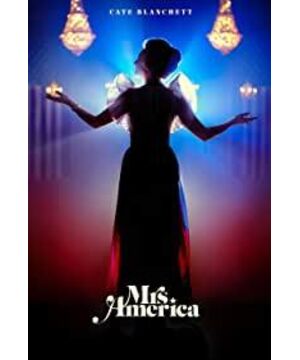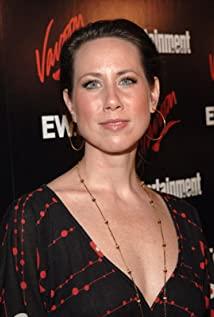Good drama, I watched 9 episodes in one go, and found "The Feminist Mystique" to read. One of the most intuitive impressions is that the feminist movement has a long way to go. Most of the characters in the play are remarkable, and it is a full-fledged TV series.
Phyllis' double dilemma
The topic of feminism was not Phyllis’s initial interest, and her stray entry into the field and her subsequent process of reckoning reflected the problem that it is impossible for women to get rid of their female identity and participate in the discussion of non-identity politics. Although gender equality seems to have achieved some progress today, it is undeniable that compared with the 1970s, men are still the default setting in the political field. As mentioned in "The Second Sex", women are the other that exists relative to men, men have subjectivity from beginning to end, and women have been running on the road of constructing subjectivity. If the entire female group cannot construct subjectivity, then a single individual cannot escape the shackles of identity politics in the public field. When Phyllis touts her defense plan to a congressman, she still has to take on the gender stereotyped role of a woman as a clerk, even though the men in the room all "respect" her and compliment her on her beautiful handwriting. You can see Phyllis's displeasure, but she held it back. When she went to ask the secretary for a notebook, there was a scene where she was in a trance, whether Phyllis here realized that the unfairness she suffered because of her gender prevented her from expressing well. self, unknown.
As Phyllis prepares for the debate with Betty Fridan, her traditional family values take a more violent blow. Her husband uses the real example of her mother to refute the legitimacy of the traditional family value of "male outside, female inside". At times, she was emotional. Even though her husband later used it to be an emotive debating technique to bypass the conflicting focus, Phyllis was more or less aware that women's rights were not guaranteed under traditional values. In this regard, Phyllis's solution is to recognize the value of housewives and recognize them, but she does not point out that the way of recognition cannot be limited to social praise, because a high moral status cannot really guarantee and bring power. . Phyllis is very far-sighted in that Pro-ERA may deny the value of housewives too much, and this denial will more or less split the female group, thereby tearing apart the subjectivity that is still under construction, so that the The feminist movement once again pulled back into the patriarchal framework.
All of Phyllis's STOP ERA campaign was ultimately aimed at securing a cabinet seat and fulfilling her original political ideal - touting her national defense strategy. Phyllis sees himself as free to express himself across identity politics, even with some roundabout tactics. She was successful. She didn't study at Harvard, but her husband graduated from Harvard. This detour and her self-consolation "they'd make an exception for me" made her not troubled by her femininity. Her choice to avoid the identity dilemma does not mean she has overcome it. In the end, she still did not get a cabinet seat, and the distant view from her sitting at the desk was even more meaningful. When she finally used the female vote in her hand to make a deal, she was already playing the card of identity politics, but she still limited the rules to the existing empowerment framework, so that in the end her ambition was defined as "a woman's ambition", although she has always considered herself outside the circle of identity politics.
Peaceful dialogue within women's groups
There have been two conversations between STOP ERA and Pro-ERA, which are very tit-for-tat. The prototype in the play also criticized this as creating too much conflict. If the vision is pulled out to real life, the degree of tearing within the female group is far more intense than what is shown in the play. Unfortunately, this intense tearing It's not political, but more pure scolding and standing in line.
In fact, there is a model of peaceful dialogue provided in the play. When Margaret and Gloria mentioned that the black community is not monolithic and that there is diversity within, Gloria's response is to encourage Margaret to speak up if she feels uncomfortable at any time. Intersationality explains to a certain extent the division within the female group. For example, Shirley in the play always has to face whether she is more black or more female, which is a ridiculous question in itself. She is both black and female. Two identities that cannot be separated exist and shape Shirley at the same time. However, different social groups always hope that those who speak for their own groups can represent themselves purely, although Shirley can feel that as a woman, she is seeking equal rights in a patriarchal society. The road is long, and I can also feel the unease and anxiety of living as a black person in a society that is still full of racial discrimination. Just as minority identities are linked, so are structural social oppression, patriarchy, racism, and chauvinism, causing systemic harm.
Therefore, from the perspective of Intersationality, women of different races and women of different classes can gain the possibility of dialogue. It is also because of a better understanding of women in different situations that they can build the subjectivity of the female group and break away from the social framework of patriarchy to seek female power. Among the thousands of cases in the nest, the one that puzzles me the most is the struggle for the right to be crowned and surnamed. The power attached to the surname is indeed more confirmation of male power, but the focus of the struggle should be on stripping the ties of surname and power. Fighting for surnames is more like acknowledging the established framework of patriarchy and gaining so-called visible power within it, but it does not achieve substantial equality of power.
According to reality, there is not only a lack of leadership and ideological essence, but also a lack of real and effective communication channels. When women's political demands are dwarfed or transformed into commercial behavior or meaningless street scolding, the final harvest can only be a piece of chicken feathers and infinite emptiness.
View more about Mrs. America reviews











